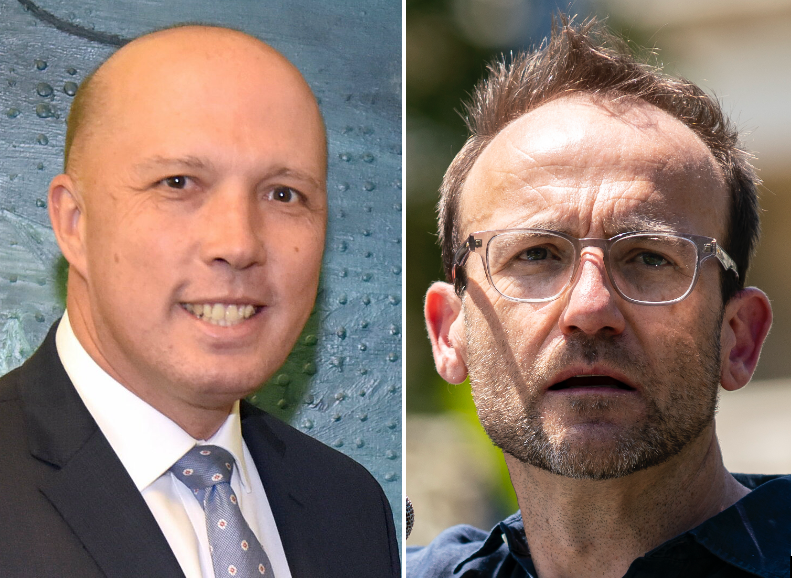The Coalition's refusal to establish corruption mechanisms will likely come to bite them at the upcoming Election, writes Dr Kim Sawyer.
IN 2012, I appeared before a committee looking at the Building the Education Revolution program. I commented the typical firm loses 5% of its revenue to fraud. A former head of ICAC confirmed this was right. It was fortunate he was there. Otherwise, they would not have believed me. Most do not realise the cost of corruption until they do.
When the Morrison Government promised to establish a National Integrity Commission at the 2019 Election, we should have known it was a weak promise. Perhaps it was no promise at all. In 2019, I wrote the election result may kick a National Integrity Commission down the road. When Attorney-General Michaelia Cash suggested on 7 February that the Government had run out of time to establish a Commission, who was surprised. They have always kicked ICAC down the road.
The 1994 Senate Inquiry into public interest whistleblowing recommended a Federal ICAC. Nearly thirty years later, we do not have one. In September 2019, a Greens bill to establish a Federal ICAC passed the Senate. The Federal Government did not support the Bill.
During the 11 years of the Howard Government, there was no major anti-corruption initiative. No federal whistleblowing legislation, no federal integrity commission, no false claims Act, no foreign corrupt practices act. Fighting corruption is more than establishing an ICAC.
Fighting corruption involves an integrated approach to corruption.
A Federal ICAC should have had the highest priority. Instead, it had the lowest priority of all. The Government was reluctant to establish an integrity commission from the start. Perhaps they knew their own members may be more scrutinised and that there would be increased political risk.
Who could forget that the Member for Dawson, George Christensen, in some years spent more time in the Philippines than in the Parliament?
Who could forget that the Member for Fadden, Stuart Robert, charged taxpayers $2,000 a month for his home internet, 20 times higher than that of other federal parliamentarians?
Who could forget that Sussan Ley resigned from the Ministry in 2017 following the disclosure of her 27 taxpayer-funded trips to the Gold Coast? Ms Ley is now Minister for the Environment.
Voters have short memories. An ICAC does not.
Federal Cabinet reportedly signed off on a commission last year, but it was only a proposal. And what a weak proposal it was. It was consistently slammed by anti-corruption advocates. The Centre for Public Integrity, led by former judges Stephen Charles and Anthony Whealy, criticised the proposal to create two divisions of accountability.
In the first division, alleged corruption by law enforcement bodies and personnel would be addressed using a general definition of corruption. There would be open public hearings and whistleblower disclosures. This is the standard anti-corruption model we call transparency.
In the second division, alleged corruption of politicians and public servants would be addressed, but only if the alleged corruption exceeded a high threshold of criminal corruption. There would be no public hearings and referrals would be accepted only from government agencies, and not necessarily from whistleblowers. The decisions would rarely be published.
This is a very non-standard model that protects those who should not be protected.
The Government does not want show trials. They have repeatedly opposed open public hearings. They have been badly burnt by history. The resignation of Nick Greiner in 1992, the resignation of Barry O'Farrell in 2014 and the resignation of Gladys Berejiklian last year resulted from ICAC investigations.
The threshold was not criminal corruption, but it was enough for resignations. Politicians have long memories.
However, if there are no public hearings, the secrets of the corrupt remain secret. The Banking Royal Commission would have failed if it were held in private, and it is the same for every royal commission.
There needs to be a threshold for public hearings, but the threshold should not be no hearing at all. Paraphrasing Louis Brandeis, the disinfectant for a corrupt politician is to get them to testify before an anti-corruption commission.
The Morrison Government seems to be hedging their bets. They sense the failure to establish an ICAC may cost them votes, but not necessarily to Labor. More likely to the independents. Failure to deliver on a promise on integrity suggests a lack of integrity.
How ironic if the Government is skewered by its own deceptive conduct.
Dr Kim Sawyer is a senior fellow in the School of Historical and Philosophical Studies at the University of Melbourne.
Related Articles
- EXCLUSIVE: Gun club financial report shows mystery grant 'costs'
- CARTOONS: Mark David does a runner
- Cuts to auditing and corruption agencies hurt democracy and environment
- Federal ICAC Now: You can make a difference
- Another day, another rort: The case for a Federal ICAC Now!
 This work is licensed under a Creative Commons Attribution-NonCommercial-NoDerivs 3.0 Australia License
This work is licensed under a Creative Commons Attribution-NonCommercial-NoDerivs 3.0 Australia License
Support independent journalism Subscribe to IA.














